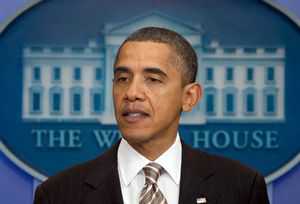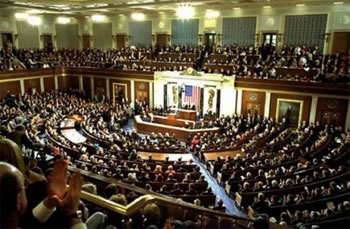What’s Really Behind Turkey’s Coup Arrests? | Foreign Policy
BY SONER CAGAPTAY | FEBRUARY 25, 2010
FEBRUARY 27, 2010
What’s Really Behind Turkey’s Coup Arrests?
All signs point to Fethullah Gülen, whose shadowy Islamist movement is rapidly extending its tentacles into all aspects of Turkish political life.
BY SONER CAGAPTAY | FEBRUARY 25, 2010
For the last several decades, the Turkish military was untouchable; no one dared to criticize the military or its top generals, lest they risk getting burned. The Turkish Armed Forces were the ultimate protectors of founding father Kemal Ataturk’s secular legacy, and no other force in the country could seriously threaten its supremacy. Not anymore.
On Feb. 22, 49 officers—including active-duty generals, admirals, and former commanders of the Turkish navy and air force—were arrested on allegations of plotting a coup against the government. Specifically, the officers were charged with authoring a 5,000-page memo that was later published in Taraf, a paper whose editorial policy is singularly dedicated to bashing the military. Among other things, the memo stated that the Turkish military was planning to bomb Istanbul’s historic mosques and shoot down its own planes to justify a coup. When I asked a former U.S. ambassador to Turkey for his views on the news, he thought the scenario was ridiculous. “If the Turkish military was going to do a coup, they would not be writing a 5,000-page memo about it,” he stated. Three days later, the former commanders of the navy and air force were released — further proof that the government’s intention was to intimidate Turkey’s military, rather than proceed with an indictment against these high-ranking officials. The arrests followed a Feb. 19 incident in which an audio recording of Turkey’s chief of staff was leaked to Vakit, a small jihadi Islamist newspaper that has celebrated the killing of U.S. soldiers in Afghanistan. In Turkey, it is illegal to wiretap individuals without a court order, and it is also illegal to publish such wiretaps. However, no one has been prosecuted for this wiretap against the chief of staff—a sign that the balance of power in Turkey has shifted decisively.
A mountain has moved in Turkish politics. All shots against the military are now fair game, including those below the belt. The force behind this dramatic change is the Fethullah Gülen Movement (FGH), an ultraconservative political faction that backs the ruling Justice and Development Party (AKP). The FGH was founded in the 1970s by Fethullah Gülen, a charismatic preacher who now lives in the United States but remains popular in Turkey. It is a conservative movement aiming to reshape secular Turkey in its own image, by securing the supremacy of Gülen’s version of religion over politics, government, education, media, business, and public and personal life.
To some, it might appear that the newfound freedom to criticize the military proves that Turkey is becoming a more liberal democracy. But the truth is that Turkey has replaced one “untouchable” organization for another, more dangerous, one. Criticizing the Gülen movement, which controls the national police and its powerful domestic intelligence branch, and which exerts increasing influence in the judiciary, has become as taboo as assailing the military once was. Today, it is those who criticize the Gülen movement who get burned. COMMENTS (87) SHARE: Digg Facebook Reddit More…
Of course, coup allegations are serious matters that warrant immediate action. However, these allegations are part of the Ergenekon case—a convoluted investigation that so far has produced nothing in the last three years but a record-setting 5,800-page indictment, hundreds of early-morning house raids, and the detention of many prominent Turks, including university presidents and prominent educators such as Kemal Guruz and Mehmet Haberal. The only quality that ties together all of those arrested is their opposition to the AKP government and the Gülen movement. Zekeriya Oz, the chief prosecutor leading the Ergenekon case, and Ramazan Akyurek, the head of the police’s domestic intelligence branch, as well as other powerful people in the police, are thought by some to be Gülen sympathizers.
Although some of the people interrogated and arrested might have been involved in criminal wrongdoing, most appear to be innocent. Take, for instance, Turkan Saylan, a 73-year-old grandmother who was undergoing chemotherapy. Saylan ran an NGO providing liberal arts education scholarships to poor girls in eastern Turkey, an area where Gülen’s network runs many competing organizations. She was interrogated by the Turkish police for allegedly plotting a coup from her death bed, and passed away only four weeks later.
Many others have languished in jail, or even died, without seeing an indictment. The Gülen-controlled parts of the judiciary and police have also wielded illegal wiretaps against those entangled in the Ergenekon case, leaking intimate details of their private lives, such as marital infidelity, to pro-AKP and pro-Gülen media in order to damage their reputations.
Illegal wiretaps and arbitrary arrests serve to intimidate the public, not prosecute criminals. Because of Ergenekon, Turks who oppose the AKP and the Gülen movement fear to speak their minds freely. If you have doubts, call a friend in Turkey and ask for an opinion of the case. Your friend will respond with details of the weather.
The military, which opposes the AKP and the Gülenists because it sees itself as the virtual guardian of Turkey’s secular polity à la Ataturk’s vision, serving as a bulwark against religion’s domination over politics and government, has become the primary target of this round of politically motivated arrests. Illegally obtained documents, including confidential and sometimes embarrassing medical records of four-star generals, were published openly in Gülenist media. Although the chief of staff said the documents were doctored, they were recently used as evidence, with the support of anonymous witnesses, to arrest serving generals and admirals.
The roots of the Gülen movement’s vendetta against the army run deep. Following the pattern of the evangelical movement in the United States, the FGH grew dramatically in the 1980s. Gülen espoused a Machiavellian approach to democracy, saying to his followers in a message broadcast on Turkish TV in 1999 that “every method and path is acceptable [including] lying to people.” In the 1990s, the movement gained political power by throwing its weight behind various governments, which in return appointed FGH members to prominent positions in the bureaucracy, including the police and the intelligence branch. In the late 1990s, Gülen went head-to-head with Turkey’s military—and lost. The clash between the Islamist Welfare Party (RP) government, which was supported by the FHG, and the military was at the center of this conflict. In 1997, the Turkish military orchestrated a public campaign against the RP. With pressure mounting against its rule, the RP government stepped down. As a result, members of Islamist movements, including those belonging to the FGH, were purged from their posts in the bureaucracy and the military. When the Turkish courts charged Gülen with corruption and anti-secular political activities in 1999, he fled to a rural compound in Pennsylvania. Although he was later acquitted, Gülen has never returned to Turkey. The FGH has returned, however, with a vengeance. When the AKP, which is largely a reincarnation of the banned RP, came to power in 2002, the FGH positioned its media, voter, and business lobby support behind the governing party. In return, the AKP appointed FGH members to prominent positions in the judiciary and the bureaucracy, including the police’s intelligence branch. With the Gülen movement in control of large portions of the government apparatus and running a political witch hunt against its opponents through the Ergenekon case, Turkey is taking a dangerously authoritarian turn. A personal friend and politician from the former Soviet Union once said, “A police state emerges not when the police listen to all the citizens, but when all the citizens fear that they are being listened to.” Welcome to the new Turkey: If you listen carefully, you can hear the political ground shifting below your feet.



 BIGGEST TAX INCREASE IN THE US HISTORY IS AROUND THE CORNER
BIGGEST TAX INCREASE IN THE US HISTORY IS AROUND THE CORNER




